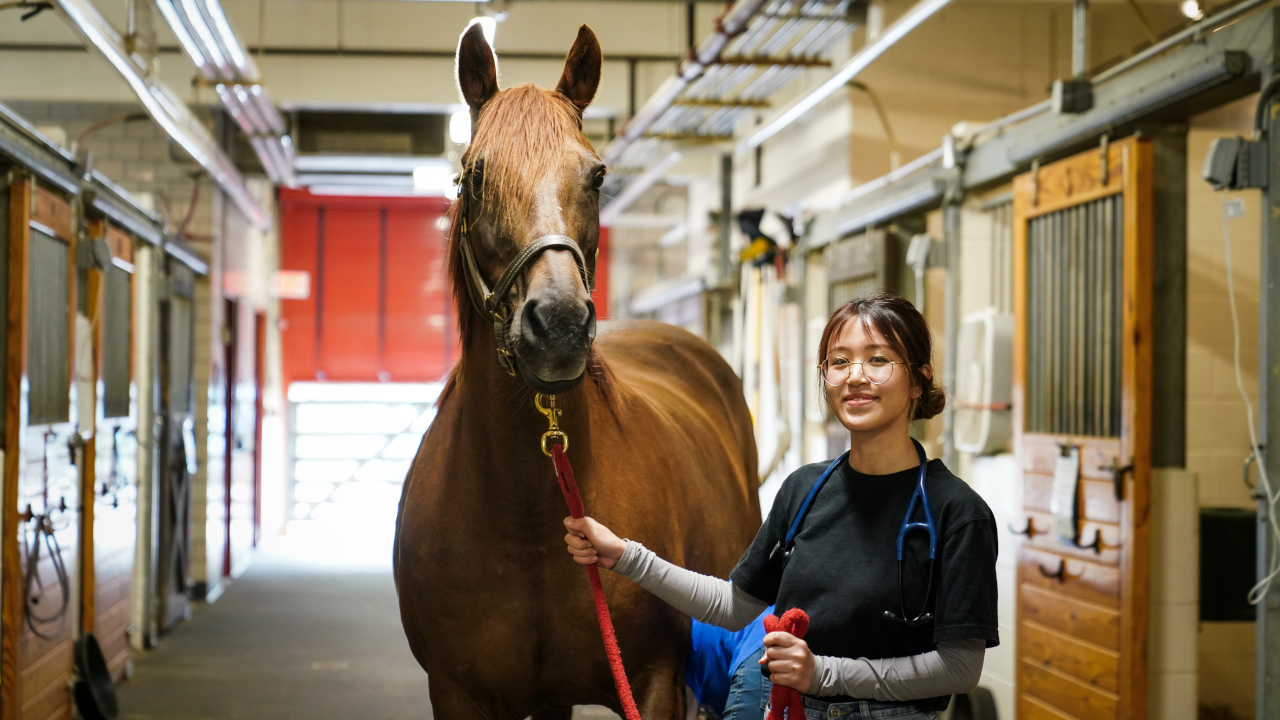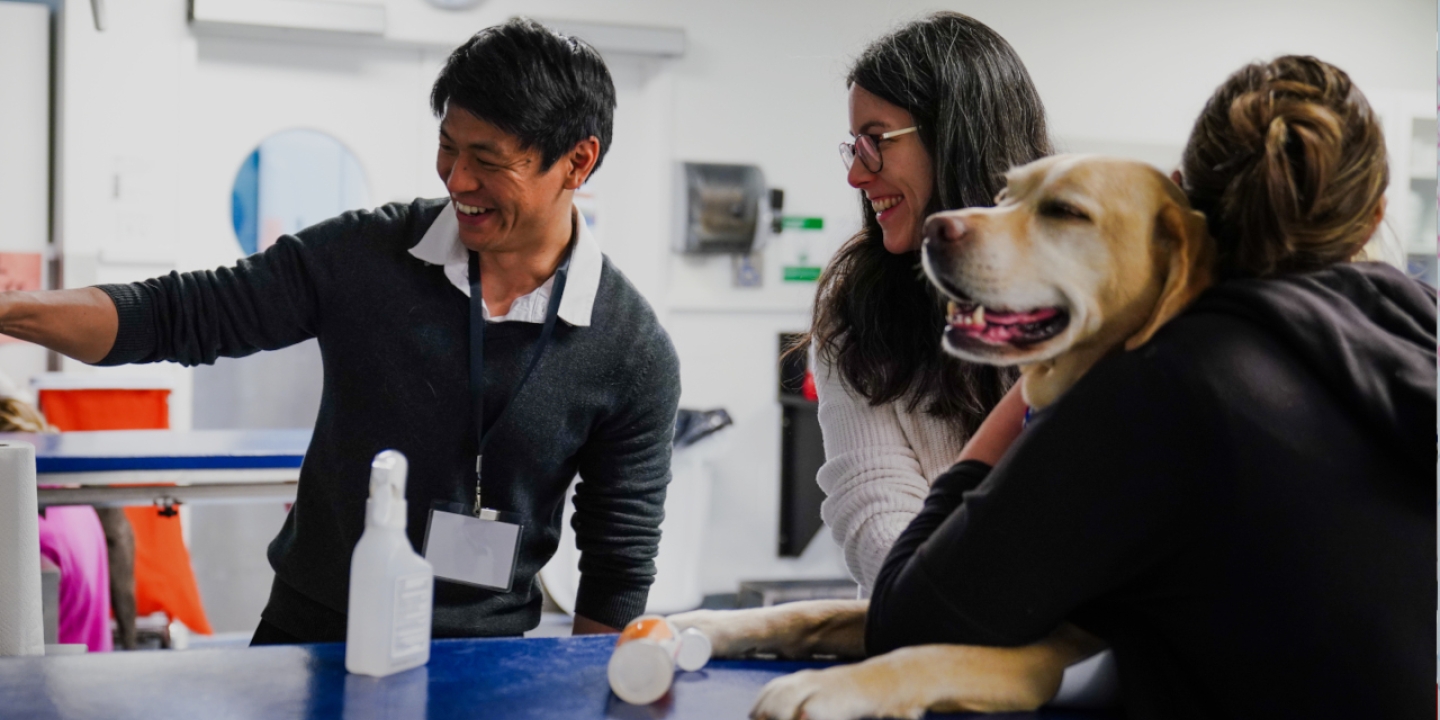Clinical Training
On-Campus Clinical Training
At Cornell, you are guaranteed extensive on-campus clinical training opportunities throughout your education.
Multiple on-site animal hospitals and ambulatory services give you access to numerous patients and species in state-of-the-art facilities, which are located adjacent to our teaching facilities. This way, clinical workplace-based learning is seamlessly integrated into the daily life of our students.
Under the mentorship of clinical faculty, veterinary technicians, interns, and residents, veterinary students act as essential members of the Cornell health care team.

Clinical Learning Environments
Below are just a few examples of the hospitals, laboratories, and practices you will have access to.
-
The Companion Animal Hospital provides primary and specialty care to more than 22,000 dogs, cats, birds, and other exotic animals each year.
-
The Equine and Nemo Farm Animal Hospital offers diagnostic, treatment, hospitalization, and emergency care for horses, cattle, goats, sheep, pigs, and other farm animals.
-
The Small Animal Community Practice (SACP) is a standalone primary veterinary practice that provides primary care, medicine, surgery, dentistry. and behavior consultations for dogs and cats. Students rotating through SACP hospital services function as the primary doctor on their cases.
-
The Cornell Ambulatory and Production Medicine Service provides routine and emergency veterinary services to farm animals in the region. Students are exposed to rural communities and landscape and treat dairy cattle, beef cattle, horses, donkeys, sheep, goats, camelids, and swine.
-
The Janet L. Swanson Wildlife Hospital is dedicated solely to the treatment of ill or injured native wild animals. The hospital cares for over 2,000 animals annually, with the goal of releasing them back to the wild. Students gain valuable hands-on learning across a wide array of wild species.
-
The Cornell Animal Health Diagnostic Center, also known as the New York State Veterinary Diagnostic Laboratory, comprises a diagnostic laboratory as well as clinical services in anatomic pathology and clinical pathology.



